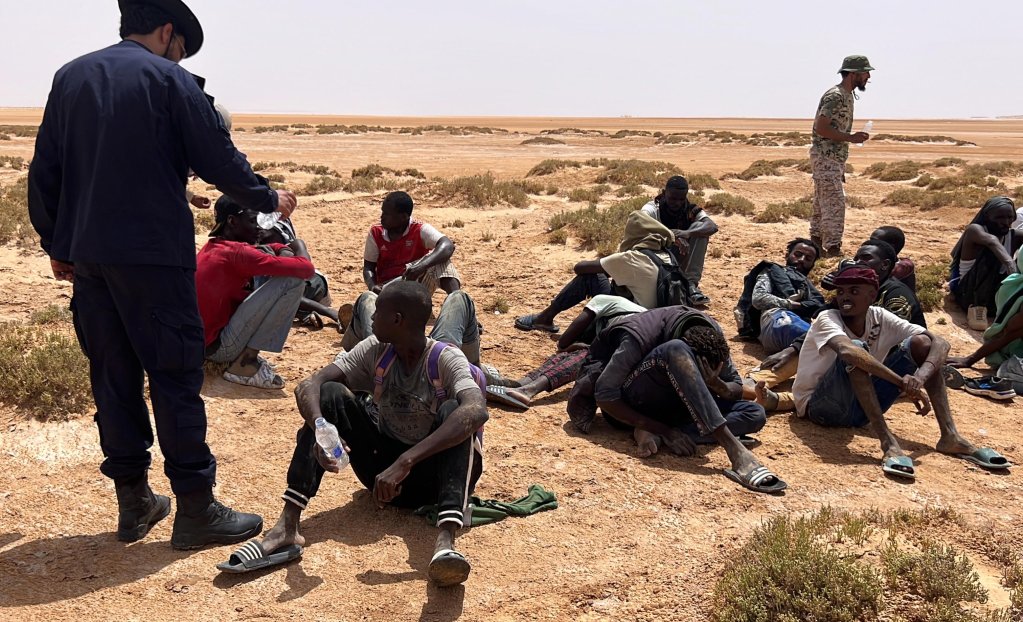The harsh treatment of migrants in Libya has become a tragic reality for thousands seeking a better life in Europe. In 2024, the Libyan coast guard intercepted 21,700 migrants attempting to cross the Mediterranean, according to the International Organization for Migration (IOM). This marks a troubling continuation of the European Union’s (EU) controversial partnership with Libya, which has led to the forced return of migrants to a country known for its inhumane detention centers and widespread abuse.
The intercepted migrants, including 1,500 women and 700 children, often travel on overcrowded, unsafe boats, risking their lives in search of a safer future. After being captured by the Libyan coast guard, who are trained and funded by the EU, many face a grim fate. They are forcibly returned to Libya, where they are often subjected to torture, arbitrary detention, and even death. Human rights organizations have long criticized this arrangement, citing incidents such as the 2017 tragedy where 15 people drowned due to Libyan authorities’ inaction.
The EU-backed deal with Libya, which began in 2017, aimed to curb migration by delegating sea rescues to Libyan forces. This policy has proven disastrous, as migrants are often left to suffer horrific abuse upon their return. Reports from organizations like InfoMigrants have highlighted the widespread torture, sexual violence, and forced labor that migrants endure in Libyan detention centers. Many are abandoned in the desert without food or water, left to die from dehydration or exhaustion.
In early January 2025, another grim chapter unfolded as 613 migrants were expelled by Libyan forces to Niger. Among them were 63 minors, many of whom had been arrested in public places, including mosques and workplaces. These migrants, primarily from Niger, had their belongings stolen by Libyan authorities before being left in the harsh conditions of the desert. Aid organizations like Alarme Phone Sahara provided essential support, but the migrants’ needs far exceeded the resources available.
Niger, which often serves as a transit point for expelled migrants, has seen an increasing number of people stranded in towns like Dirkou. The overcrowded IOM-run center in Dirkou, which can only accommodate 30 people, is overwhelmed by the influx of deported migrants. As many as 400 migrants were stranded in the town in November 2024, forced to sleep outdoors in dire conditions. Despite their desperate desire to return home, many face a standstill in the process of relocation.
These expulsions are part of a broader EU strategy to curb migration by training and equipping security forces in North African countries, including Libya, Mauritania, and Morocco. However, these policies often lead to severe hardships for migrants. Abandoned in remote desert areas, many succumb to dehydration, fall victim to traffickers, or lose their lives in the unforgiving conditions of the Sahara.
Libya’s descent into chaos since the fall of Muammar Gaddafi in 2011 has created a dangerous environment for migrants. Armed groups and militias routinely abduct migrants, subjecting them to torture and forced labor. South Sudanese activist David Yambio, who survived the brutal conditions in Libya, describes the situation as a modern-day slave trade, where migrants are sold to traffickers or left to suffer in detention centers.
Yambio, now a refugee in Italy, continues to document the atrocities faced by migrants in Libya through social media. His recent posts highlight the story of Naima, an Ethiopian woman held captive in a Libyan detention center, where her captors demand a ransom from her family. Sadly, Naima’s story is not unique. Thousands of migrants remain trapped in Libya, their fates uncertain, as they endure abuse, exploitation, and the constant threat of death.
The EU’s migration policies have failed to protect vulnerable migrants and instead have enabled the exploitation and abuse of those seeking refuge. The continued silence of the international community only serves to prolong the suffering of those caught in this deadly cycle. The stories of migrants like Naima and countless others must be heard, and urgent action is needed to end the horrors of migrant detention and deportation in Libya.

